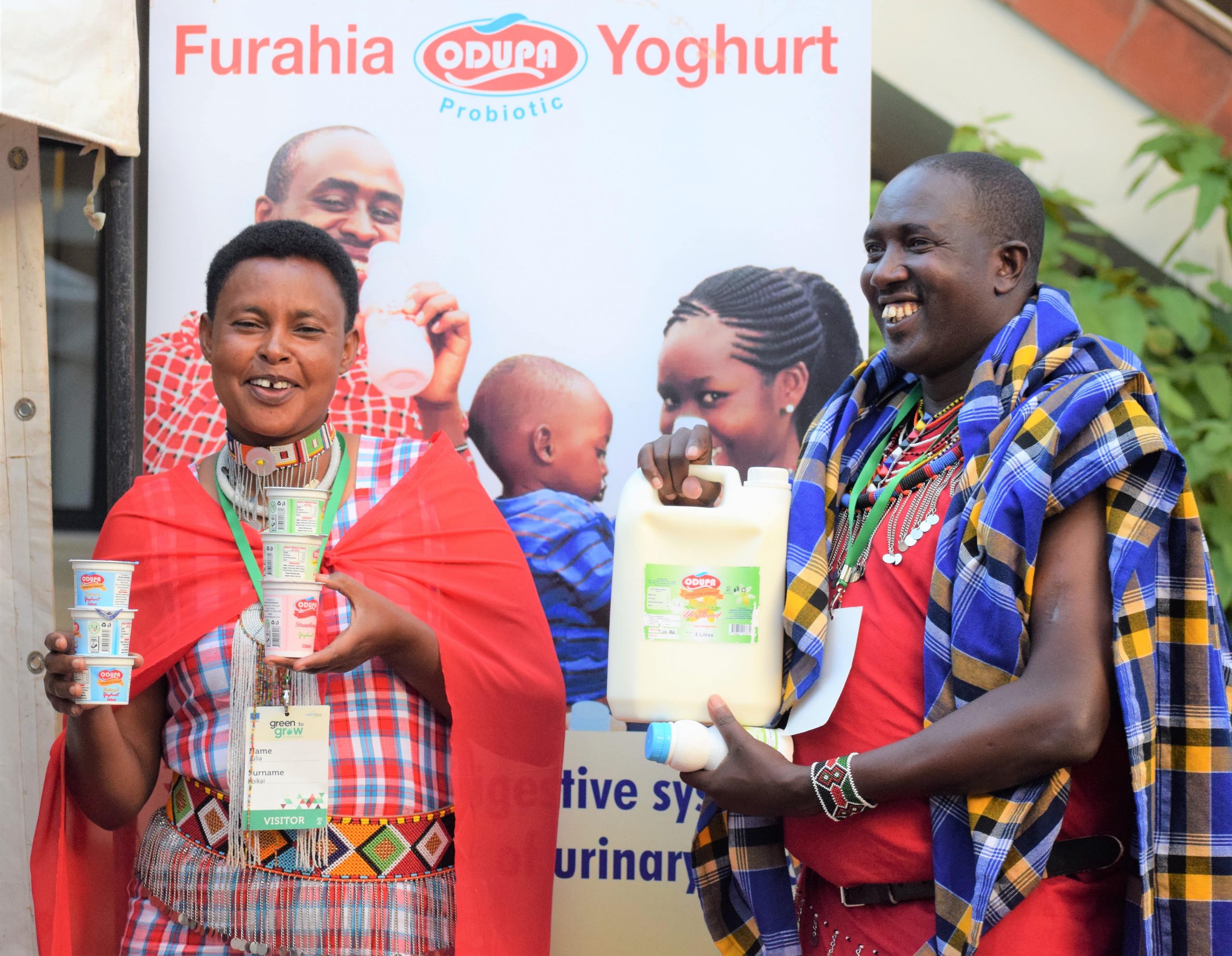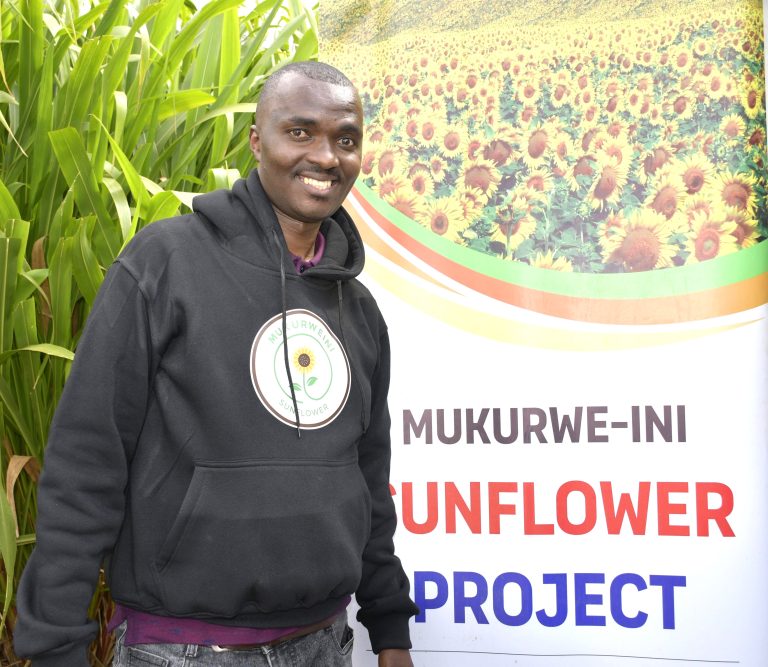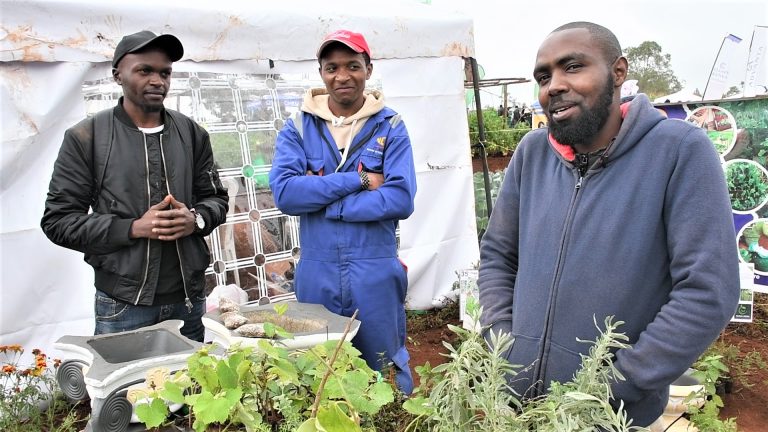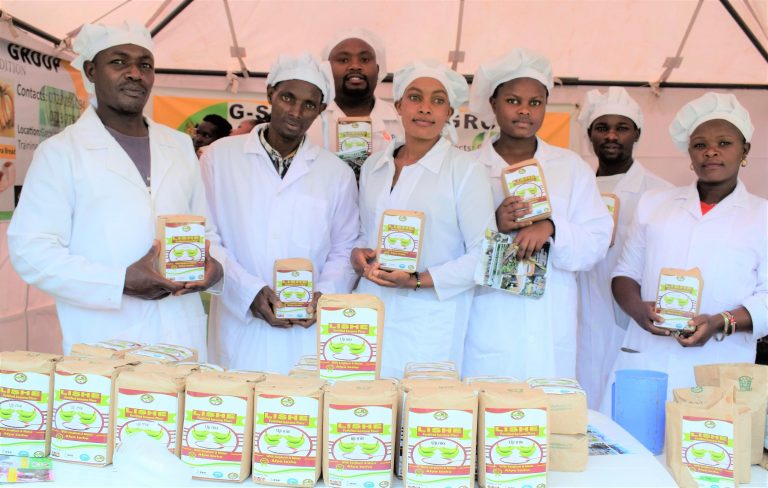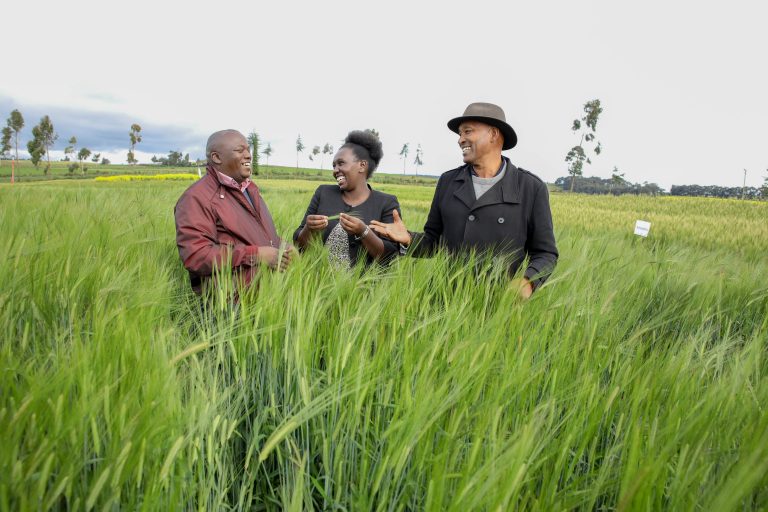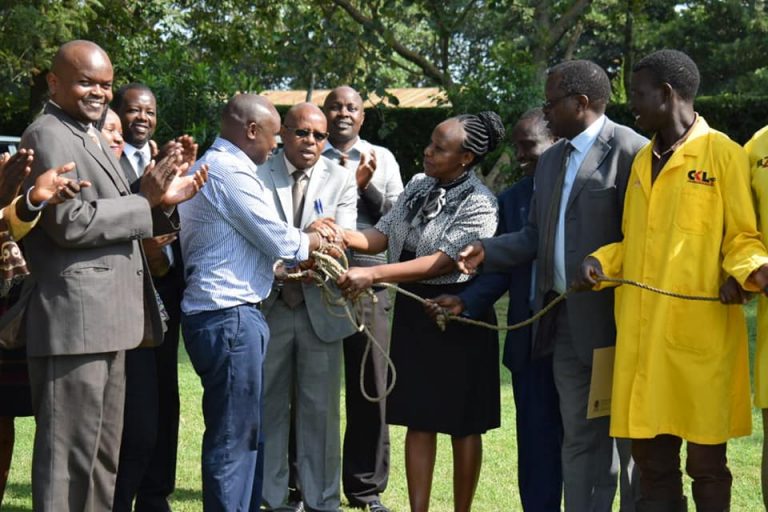By Kimuri Mwangi
Cultural factors affect agriculture in many ways around the world depending on believes and customs of particular people in a given place. In Kenya among the Maasai Community, women are not allowed to own cows and they all belong to men who are the head of the family. This sounds like discriminating against women but there is a beautiful rider to it- all milk from the cows belong to women and men have no business asking them what they do with it or where they take it.
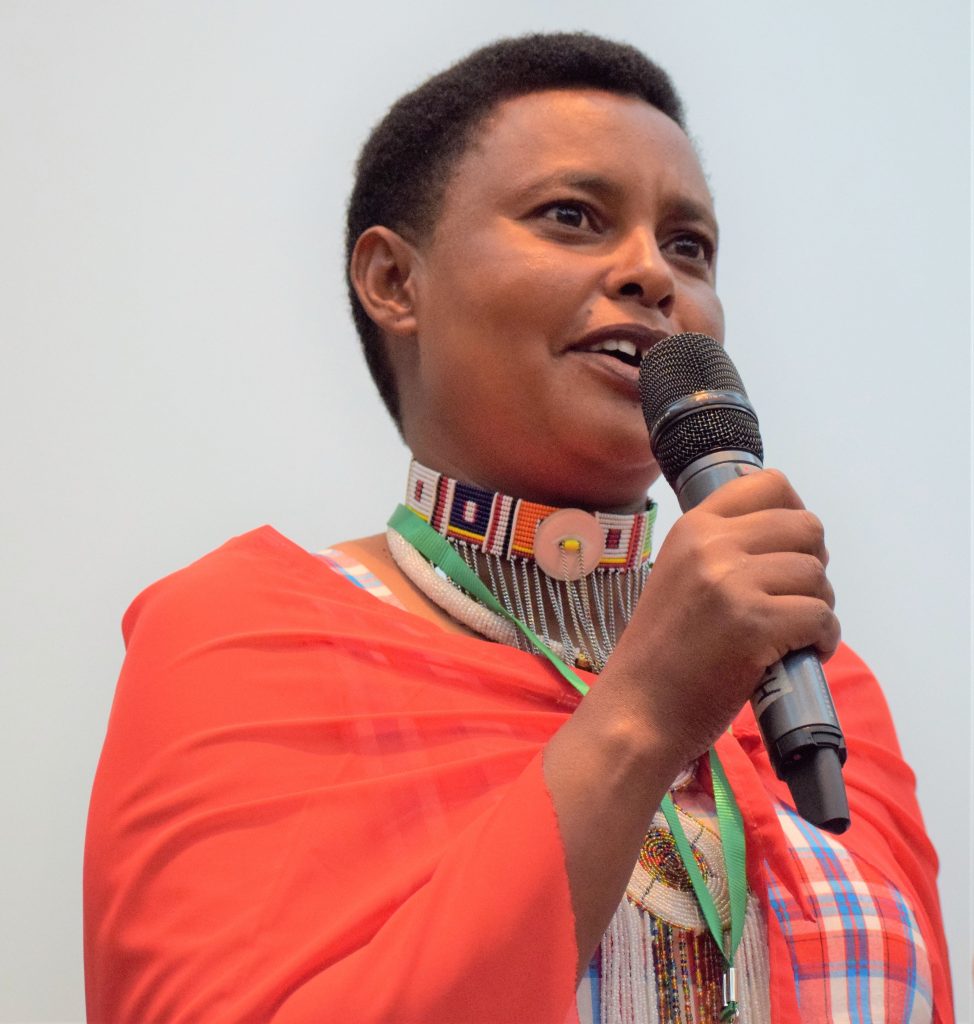
Julia Koikai saw this as an opportunity and decided to do something about it. She had gotten an opportunity to attend a training at Jomo Kenyatta University of Agriculture & Technology (JKUAT) on making probiotic yoghurt. The word “probiotic” translates to “for life,” taken from its Greek and Latin etymology. Probiotics are good, friendly bacteria. They are cultures that have been shown to provide specific health benefits such as supporting gut health and contributing to the maintenance of balanced gut microbiota, important for the proper functioning of the digestive system and the entire body. All yoghurts have live and active cultures, but not all have probiotic strains that provide specific health benefits.
In 2017 and armed with the knowledge, Koikai decided to utilize it at her home area in Ololulung’a in Narok County. She wanted to make probiotic yoghurt but she knew the idea may not be appealing if she went alone. So with the support of her husband, she sold the idea to her friend Christine Nkoitoi. A meeting was later arranged between the two women and their husbands and they decided that the two women should go ahead and start making probiotic yoghurt and see the response in the area. “We bought 5 litres of milk at Kshs 20 per litre, half a kilo of sugar, a sufuria and some other things. We used about Kshs 2,000 to prepare our first 5 litres of probiotic yoghurt which we took to Ololulung’a market during the market day. We sold all of it and the consumers were mostly old people and children,” says Koikai. They would tell a person to come with a container and they came with cups and others plastic bottles where they put the yoghurt.
Encouraged by the positive reception, they made 10 litres the following market day which sold out this time being consumed by all people including the youth. They decided to make 50 litres next and since people had started knowing their product, they sold all of it and went home happy. “This motivated us and people started coming to our place to see how we made the yoghurt which made them trust us and they became regular customers. Health personnel in the area also educated people on the benefits of probiotic yoghurt and referred them to us and this boosted us also,” says Koikai.
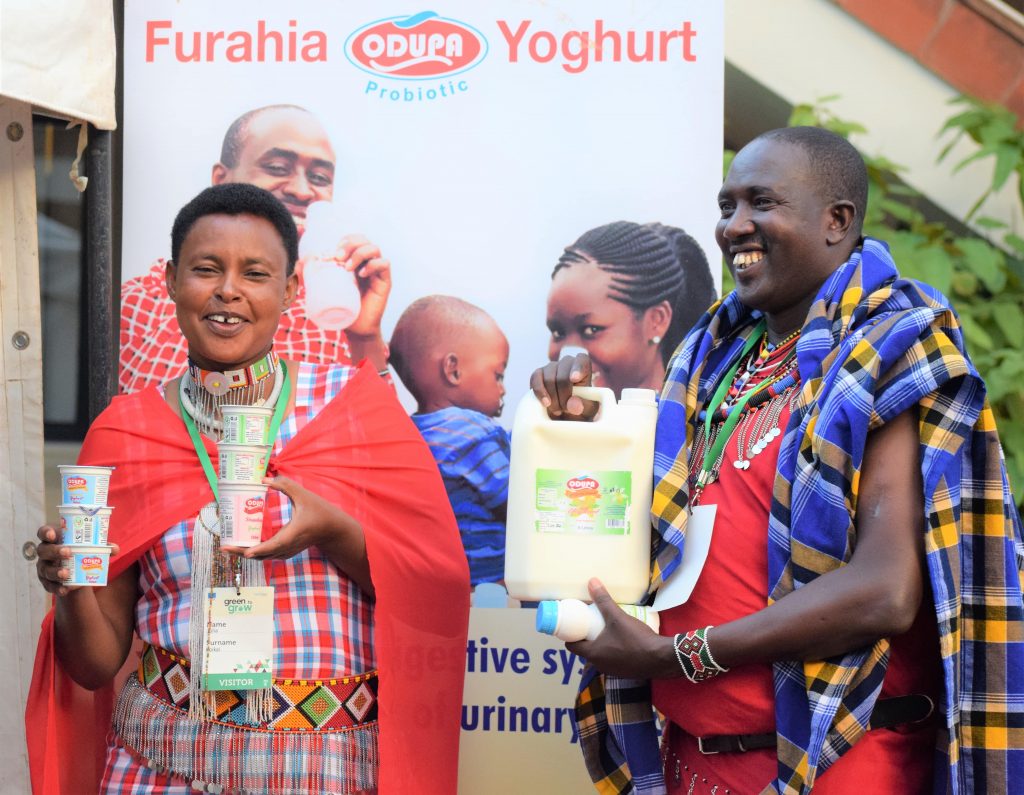
Buoyed by the positivity of the product among the locals, they engaged a higher gear and recruited other women in the area and Odupa Dairy Co-operative Society was born. “Since
The women cooperative soon made a mark in the area and their efforts were rewarded. The National Government gave them a cooler with a capacity of 5,000 litres. The Narok Woman Representative office came calling with a 3,000 litres pasteurizer. They then sought the Kenya Bureau of Standards (KEBS) certification and Odupa Probiotic Yoghurt Brand got the approval to hit the market. They bought a sealing machine and JKUAT printed the 100 ml cups for them for free, trained the members and helped them in launching the brand into the market. Recognizing their efforts, the women’s husbands financed the printing of the 150 ml cups and told them to print the 250 ml cups from the proceeds. Other organizations and well-wishers also helped them in various ways.
To market their product, they visited women groups in the area who were practising table banking giving them some for tasting. They visited churches and public barazas giving information and free samples. They also used social media platforms like Whatsapp to let people know about Odupa probiotic yoghurt.
The women’s husbands were captivated with their efforts as the income from milk sales was being felt in their homes. They came together again and bought them a van to take their yoghurt to the market. Other men and the youth in the area were also wondering how they could join the successful venture and requested to be added as members. “Today we have a membership of 60 members and among these, men and youth are about 20. The youth help us a lot in marketing especially on social media and running errands,” says Koikai.
Daniel Kiplosh who is currently the Marketing Director of the cooperative is one man who couldn’t resist the urge to join the women. “We were watching at a distance as the women continued to grow and show us they are better in business. Since I saw they had a vision I decided to approach them and requested to become a member. They discussed with me especially on the value I was bringing to the venture and after accepting me I was told to pay a registration fee. Later because I am a community leader with a big network, they made me the Marketing Director and I am grateful,” he says. Kiplosh says the Cooperative which is women-led has become a good example in Narok County on women economic empowerment which has been slow in the community. “Many leaders and women groups visit us to learn from the women on how they accomplished this from an idea from one of them. We are proud of them too,” he adds.
Koikai says they have been able to penetrate the market in Narok and Bomet Counties. “We sell in shops, schools, hotels, hospitals and other places and we are looking forward to expanding our market further after the Covid-19 challenge. Our packaging process is also mostly manual and we hope to automate it one day,” she adds. The cooperative also attracted the attention of the European Union and currently, it is included in the Switch Africa Green Programme, which is co-financed by the European Union. “We have been getting training on financial record keeping, value proposition, customer care and milk hygiene among others. Under the Switch Africa Green Programme, we have also exhibited our yoghurt in many forums and exhibitions where we meet all kinds of people. We are hoping to benefit more and who knows we might even get some financial assistance later,” says Koikai.


